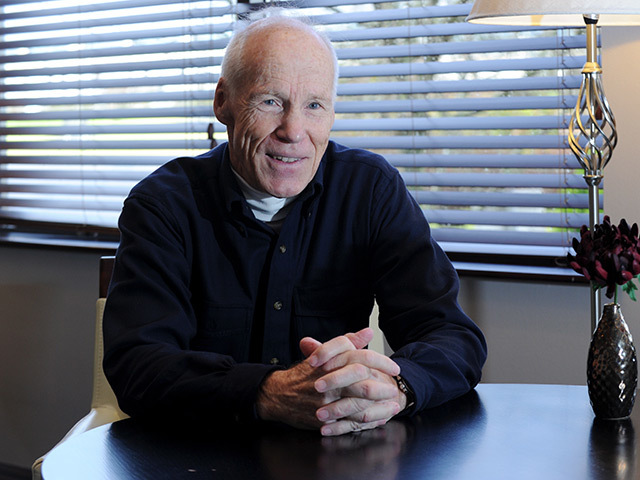
Canadian Dr Joe MacInnis was the first scientist to dive at the North Pole – that was in 1976.
In 1985, he was an adviser to the team that discovered the wreck of the RMS Titanic.
Between 1985 and 1991, he made dives in the Russian MIRs research submersibles and the French submersible Nautile, including his first visit to the Titanic in a submersible, in 1987.
In 1991, he co-led the expedition to the Titanic which made the IMAX film Titanica, on which he served as co-executive producer. He also dived by submersible to the Titanic’s bridge deck.
On March 10, the date of the second edition of Young Energy, he will be aboard a National Geographic ship, realising a cherished ambition built around one of his heroes, the Antarctic explorer Ernest Shackleton.
Joe, a physician, scientist, aquanaut, writer, journalist, deep thinker, adventurer, motivator, mentor and much else, and a Scot by heritage, was born in 1937 yet is among the most exciting people that any young person with a zest for life could surely encounter.
But what set him off on this astonishing life of adventure?
“When I was in my early teens, I wasn’t sure what I wanted to do with my life; I didn’t have a specific goal in mind,” says Joe.
“But I had two themes of interest that were running in my mind and one was the natural world, the outdoors. I’m surrounded by thousands of lakes here in Ontario so I was fascinated by the natural world.
“The other theme that interested me was the human being, people.
“And so, rather than look for a specific job, I focused on those themes and medicine was the perfect fit for me.
“I knew I couldn’t be an engineer; I couldn’t be a lawyer; that wasn’t where my interests lay.
“So I concentrated on science and areas that would allow me to get into medical school and fortunately I did get in.”
While in his teens, Joe learned to scuba dive, one of the best-ever investments he made in himself.
Qualifying as a physician and learning to dive began to merge.
“I graduated in medicine from the University of Toronto; I was looking for some way to work in the ocean and it was the time of pioneers like French underwater explorer Jacques Cousteau,” recalls Joe.
“Fortunately, I got a job with one of those pioneers, a guy called Edwin Link, who headed up the American Man and Sea programme and gave me a Link Foundation fellowship to study diving medicine at the University of Pennsylvania.
“But I want to stress to those who read this; sometimes we don’t know what we want to do and so it’s a process of elimination.
“We have to have an education; we have to know about science; I’m a strong believer that we also have to know about literature.
“I’m a guy who loves the borderline between art and science; art being literature and photographs and images and paintings and music and science as well.”
But does science offer a good career?
Joe: “You have to decide what you’re passionate about. And science is such a wonderful doorway to walk through as a young person. It offers all kinds of options.
“But you need a complete understanding of the structure and dynamics of all the Stem elements. And once you have that, you can do anything, go anywhere in the world; get any kind of job, if you’re passionate and really a life-long learner.
“I’m a curiosity junkie; I love to learn things. And the people that I hang around with are just the same.
“James Cameron, a Hollywood film director, an old friend of mine, has won 21 Academy Awards, he’s led eight deep-sea expeditions and he is a self-taught lifelong learner.”
But how did Joe meet him and end up on an odyssey to the Titanic and other adventures?
“I encountered Jim when he was 14 or 15, living very close to where I am here in Canada.
“The short story is that I built an underwater classroom called the Sublimnos. Jim saw this, wrote me a letter asking how I built it; he wanted to build one too.
“I wrote back, we became friends and have been ever since. I’ve been on his last two deep-sea expeditions as the journalist and back-up physician and I can tell you that Jim is very special. He’s a certified genius. But he learned it for himself.
Basically, Cameron saw something fantastic that Joe MacInnis had created and wanted to learn from him. A very important outcome was that Joe became his mentor, something that we all need in our lives.
“I now study leadership and high-risk environments and mentoring is the major component of leadership.
“If you’re young and you’re looking for help, find a mentor; find someone who will give you advice.
“Mentoring is so crucial when you’re young. Find one!”
Recommended for you
